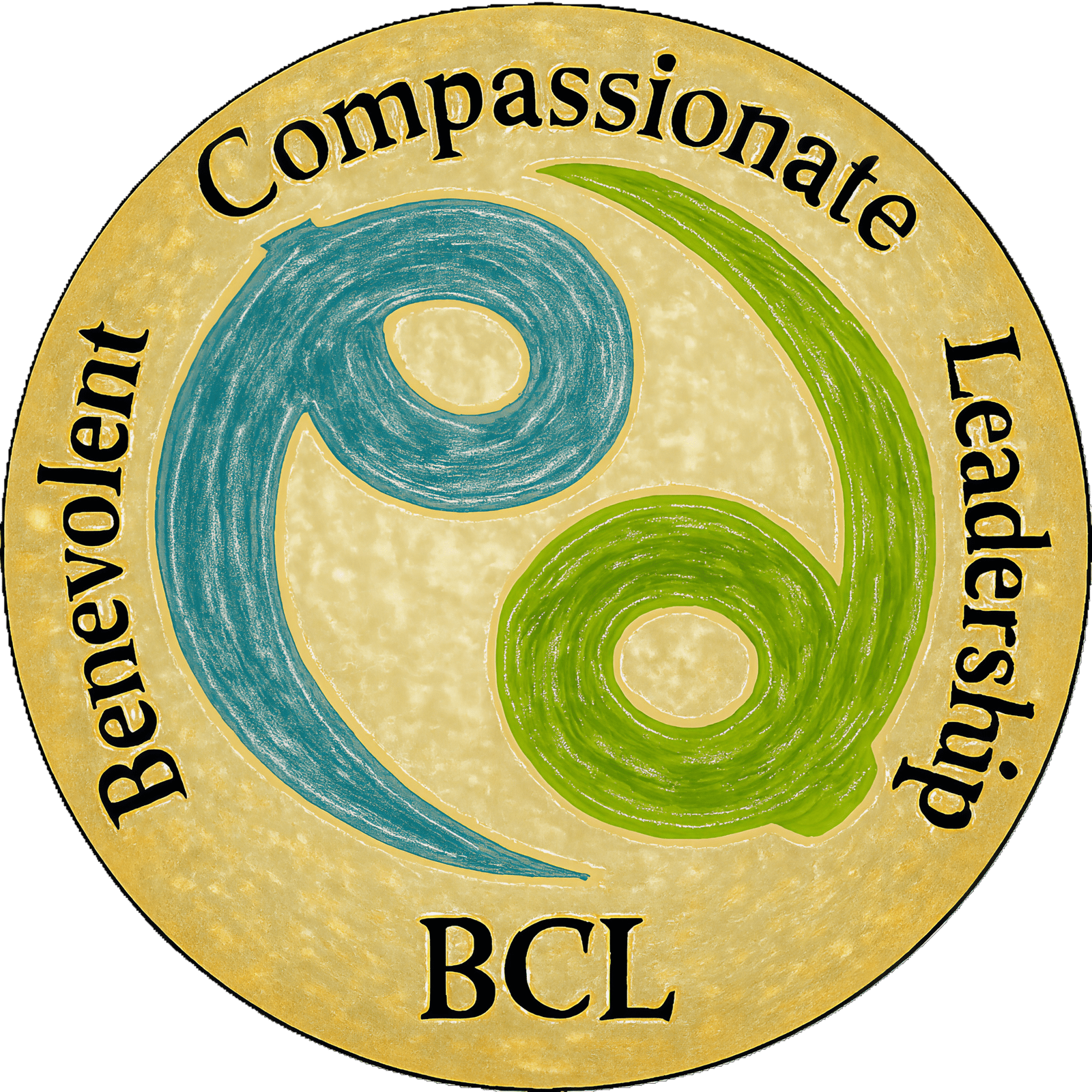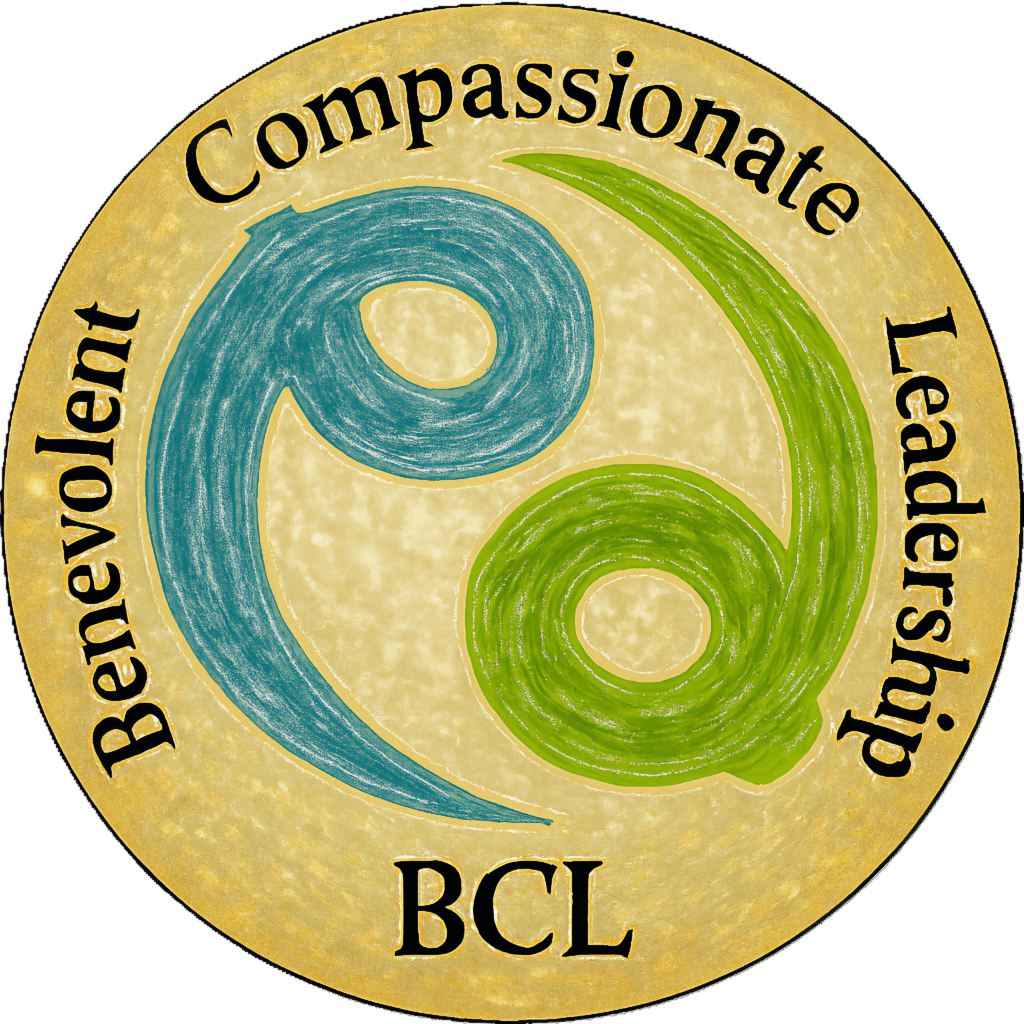
Leadership is a journey.
Let Benevolent Compassionate Leadership Be Your Compass
Empowering Leadership
Empowering leaders and their teams through accountability, effective communication, and ethical practices.

Leadership Redefined

Leadership has traditionally been defined as the ability, standing, power, or right to lead others. This definition leaves out the moral imperative of caring for those one leads in a positive, inclusive, ethical, benevolent, and compassionate manner.
The traditional definition is focused solely on power and not on how leaders engage with others on the journey – this can lead to toxic leadership. True qualities of leadership are not predicated on wealth, class, race, gender, or position. They consist of intrinsic qualities connected to principled behaviors, personal responsibility, positive engagement, caring, and character.
I define leadership as:
“The ability to engage with people, processes, and programs effectively, responsibly, and ethically to achieve organizational, team, or individual goals.”
Developing or enhancing the skills of effective leadership is a life-long journey and requires a commitment to key values demonstrated through behaviors. My leadership philosophy and tools can help you lead better – with an ethical framework – and a focus on success.
In today’s toxic business and political environments, the traditional definition of success – gaining, securing, or achieving wealth, respect, or fame – is achieved by exploiting relationships and destroying reputations. This “pull yourself up by your bootstraps,” “win at all costs,” “take no prisoners” form of “rugged individualism” does not acknowledge the broader, more attainable idea of success based on inclusion, shared values, common goals, and collective action. Just as the traditional definitions of leadership was updated, the traditional definition of success must also be updated:
“Success – Attaining your dreams while maintaining your dignity and the dignity of others.“
Leadership Development
- Effective leadership does not require perfection – leaders are as imperfect as the next person, but how the leader works, communicates, and recovers from mistakes determines whether they gain, maintain, or lose respect and trust.
- Leaders are always under scrutiny and will constantly be tested – this fact should not deter or overwhelm leaders. It should serve as a catalyst for positive, meaningful, and intentional behaviors. While successful leaders consistently live by their values, they are also open to discovery and growth.
- Leaders are like batteries – those around the leader draw from them as if they were a power source. They draw on the leader’s encouragement, strength, compassion, understanding, honesty, courage, and demonstrated humanity so that they can stay motivated to do the work. One of the greatest challenges for leaders is to effectively recharge in order to consistently offer support to others without becoming so drained that they lose the ability to lead. It is imperative that leaders engage in self-care. “Self-care is any activity that we do deliberately in order to take care of our mental, emotional, and physical health. Although it’s a simple concept in theory, it’s something we very often overlook. Good self-care is key to improved mood and reduced anxiety. It’s also key to a good relationship with oneself and others.” – Raphailia Michael
- Leadership is not a solitary exercise – Leaders should not operate in a vacuum of information or community. Leaders may stand alone at times, but they should not be isolated or remote. Maria Castañón Moats challenges leaders to, “Cultivate a network of trusted mentors and colleagues. Other people can give us the best insight into ourselves—and our own limitations. We must have the courage to ask for help and to request feedback to expand our vision of what’s possible.” Collaboration and guidance from trusted advisors, thought partners, and multiple sources of information, supports the leaders’ decision-making process, develops collaboration skills, and engenders trust. Collaboration is necessary to maintain clarity, balance, and perspective.
- Leaders cultivate relationships – Leaders focused on the common good can create a network of like-minded individuals to share the weight of an endeavor or movement and reach a successful outcome. A successful outcome does not only mean that the goal is achieved. The development, execution, and realization of goals is important, but how one achieves success and how one demonstrates leadership is determined by the hands they hold and the moral compass that guides them along the way.

Recognize & Follow Your Leadership Path
Follow a path that leads to a more just humane and caring world. Empowering leaders through effective communication and personal accountability strategies.

No person is an island; especially those in positions of leadership.
Leaders should not operate in a vacuum of information or community. Leaders may stand alone at times, but they should not be isolated or remote. Collaboration and guidance from trusted advisors, thought partners, and multiple sources of information, supports the leaders’ decision-making process, develops collaboration skills, and engenders trust. Collaboration is necessary to maintain clarity, balance, and perspective
Benevolent Compassionate Leadership

Benevolent – established, organized, or focused on doing good.
Compassionate – feeling and demonstrating empathy and caring for others.
Leadership – The ability to engage with people, processes, and programs effectively, responsibly, and ethically to achieve organizational, team, or individual goals.
The core principles of leadership and success: compassion, doing good, demonstrating caring and empathy, effective engagement, proper execution of goals, and maintaining one’s dignity and the dignity of others, are learned behaviors.
Individuals learn to become toxic leaders and individuals can learn to become benevolent compassionate leaders who embody the core principles of leadership and success.
The Five Core Skills Of Benevolent Compassionate Leadership©
- Understanding self
- Understanding others
- Understanding the objective(s)
- Practice
- Patience
Benevolent Compassionate Leaders follow an inclusive premise of leadership, one that recognizes that the word “leader” is more than a title, that leaders make critical choices every day, that leaders will always be defined and judged by their behaviors, and that leadership is a skill that must be honed and practiced. They recognize that the idea or premise of leadership is not static, that it is always in flux, and must constantly be examined to ensure that it is contemporary and inclusive.
Unlock your potential with Russell Davis’s insights on ethical leadership and effective communication for today’s challenges.
